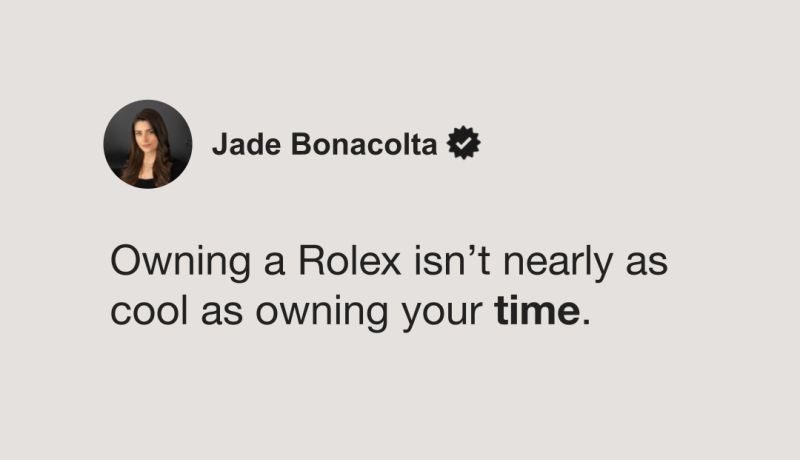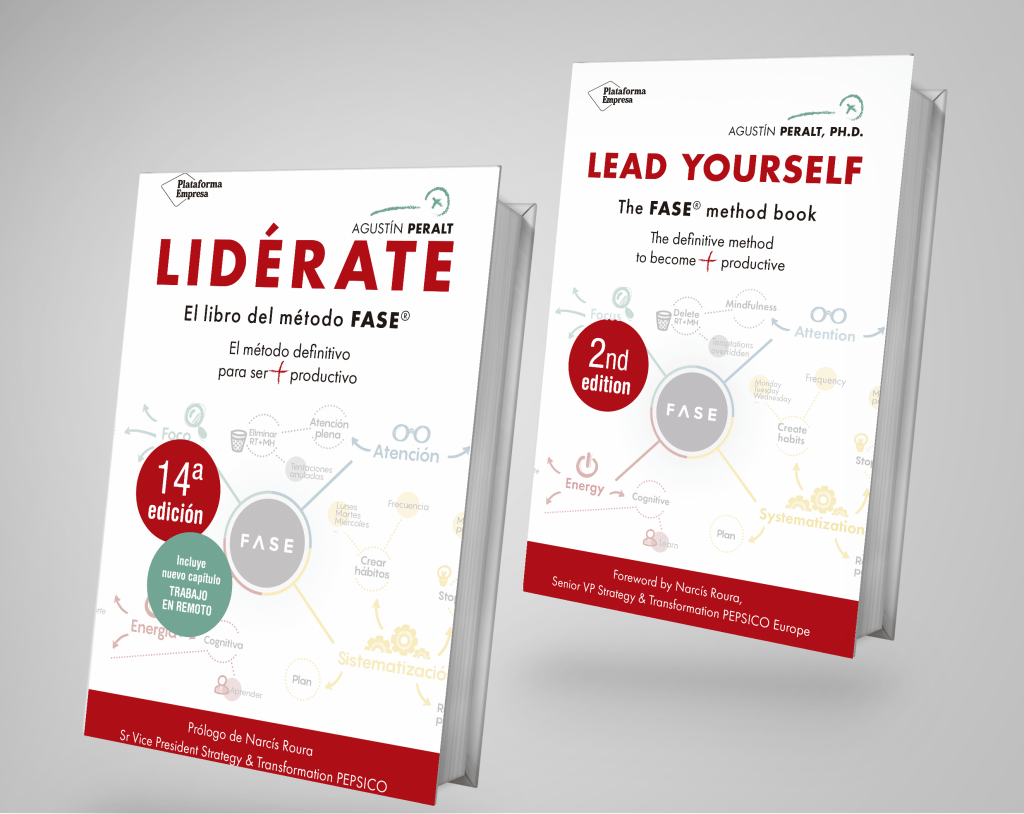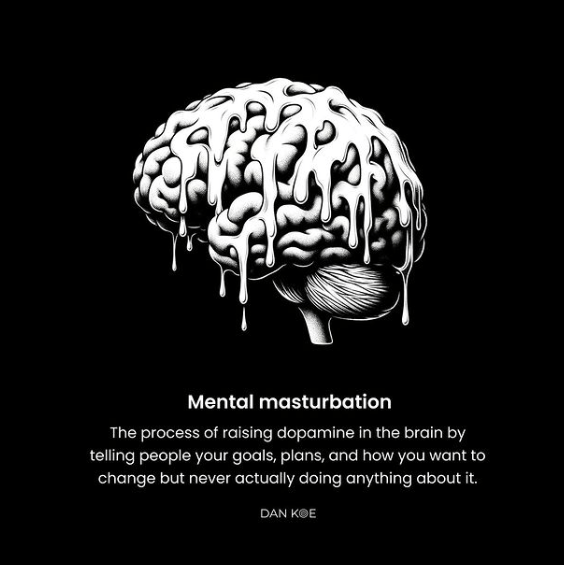At the start of our work with leadership teams, we always begin with a self-assessment process that covers a range of topics directly influencing both personal and organisational effectiveness. Naturally, in September, a lack of energy isn’t usually highlighted as an area for improvement, as most of us feel somewhat refreshed after the summer holidays. However, that doesn’t mean we can afford to overlook the importance of establishing habits and routines that will help us maintain this energy level over time. Fortunately, many people have learnt that weekends are for rest and know how to recharge. But is that enough? In our experience, it’s often not. It’s essential to remember that the week runs from Monday to Sunday. Therefore, we need to be intentional about how we recharge our energy throughout the week. Sometimes, small actions can lead to significant improvements ❤️. Here are three simple tips that can make a real difference: Carve out 30 minutes for lunch, completely disconnected: Personally, I make a point of removing screens, phones, and any distractions. Two daily walks, especially after lunch, to avoid that classic post-lunch slump: I’ve found these breaks are key to keeping my energy up throughout the day. Include some leisure activities during the week: Even when travelling, I make sure to incorporate at least a little time for enjoyment. Three small things that make a big difference. And you – are you intentional in planning activities that help you recharge each day?
Author Archives: Gabriela Morales
Summer and vacations are the perfect times to slow down, become more observant, and enjoy the present moment. I love watching how people behave in hotels, planes, and restaurants. And there’s one behavior that’s becoming increasingly noticeable: our growing addiction to the dopamine hit from our phones and how we’re all getting hooked. Books that are only opened for a few minutes on beach chairs before being replaced by a phone screen. Family meals or dinners with friends where everyone is more focused on their devices than on enjoying a good conversation. Even at concerts, where it seems more important to capture the moment with a camera than to actually experience a live performance. Recently, at a restaurant in Mexico, we burst out laughing when we heard the waiter’s response when we asked for the wifi password: “The wifi here is: put down your phone.” A brilliant reminder that true connection isn’t found online but in enjoying each other’s company, good moments, and our surroundings. Do you dare to disconnect in order to truly connect? Connect with quality individual work sessions of at least 30 minutes. Connect by really listening with empathy to someone on your team. Connect by giving your full attention to your children and partner. Connect through conversations with friends. Connect by reading a book. Connect by observing people’s behaviors in meetings. Connect by noticing the everyday things we’ve stopped noticing.
Recent studies indicate that 78% of employees are already using their own AI tools at work. Yes, you read that correctly. This figure is better than expected, though still lower than desired when considering all the advantages it brings. In our team, we conducted a quick analysis of the past two weeks. 90% of the team uses AI daily. The average time saved is between 1 and 2 hours per day. Incredible but true. We’ve gained a lot in preparing presentations and managing emails. And we still have yet to use it for other processes and activities that are very present in our daily routine, such as learning new topics. Our Decision For this reason, we decided to incorporate AI into our personal productivity training as a new section. We cannot talk about personal productivity and effectiveness without considering AI. Just as it’s a bad habit to excessively check social media during work hours or to perform numerical operations without using Excel, it’s also a bad habit not to use AI to streamline some processes and save time. And not only that, in some cases, it can also improve the quality of the final result. At FASE Method, we know that if you don’t guide the integration of AI, your employees will do it on their own, albeit at different paces, missing the opportunity to create a culture of learning and improvement as a team. This is a progressive path, both individual and collective, where we must, with a minimal understanding of AI, experiment, test, succeed, fail, and share our learnings. This is the first thing we explain in our workshop “EfectivIdAd by FASE Method.” Do you want your company to ride the AI wave and not drown in it? Then start training your teams on how to use AI to save time and, in many cases, improve work quality. It’s time to stop seeing AI as something for the future and start integrating it today into your daily routine, just like Excel, Outlook, or Zoom.
Having the Dutch invite a Spaniard to give a conference in Amsterdam titled “Work Smarter, Not Harder” and to present Método FASE, a Spanish productivity and time management methodology, might seem like a joke, and above all, not very credible. That’s why we added to the title: “Work Smarter, Not Harder and LIVE BETTER.” The idea of wanting to know the secrets of Spaniards to enjoy life is much more attractive. Jokes aside, last week we were in Amsterdam invited to this conference by QBE Amsterdam, thanks to Sebastián Ijaz and Beatriz Valenti, all of them clients of the method. First surprise: full house! And, knowing the place well, since some of us have worked in the country before, we were surprised that they valued the messages we usually convey so much. Second surprise: Very positive reception, much greater than expected. Full House: The Impact of the Productivity Conference in Amsterdam This made us think about the reasons behind such a good reception. Later, when talking with Joris, our coach who leads Northern Europe, we came to the following conclusion: technology, which came to help, has progressively and silently deteriorated high-productivity cultures like the Dutch, where they are now starting to have time management problems more than in the past. The misuse of technology for communication in all its forms – email, mobile, Teams – as well as the power of the internet to distract us, among other things, has led to multitasking taking over everything, making the rest difficult. It makes us not have enough time, unable to work with full attention on certain topics, and drains our energy during the day. And this leads us to the hamster wheel of silent and progressive deterioration, where we end up lacking time to think about our priorities or to plan well. What an irony. Our conclusion is clear: technology, or rather, the misuse of technology (as Jon Acuff says, “there is a whole industry that does not want me to grow, that does not want me to change, that does not want me to stay connected to what really matters”), has made productive people and cultures less so, and those that were not productive are in free fall. And that’s why we see so many cases of burn-out. It’s not the workload, nor the issues in the sectors, nor how complicated your company is, nor your boss, nor your team, nor your partner; it’s us and our inability to detect that, with this way of working, everything is much more complicated than it really is. We must change. Everyone can find balance, but effort is required to achieve it. Are you ready?
Pladis UK success: Helping teams work smarter, not harder, with the FASE Method® PLADIS, one of the world’s leading snacking companies with over 300 years of family baking and confectionery experience, and FASE METHOD®, one of the leading methodologies in Europe, help contributors and senior managers achieve a balanced life and better results. No one doubts that when our teams are committed and engaged, everything works much better, creating a virtuous cycle of greater goal achievement, better results, and more resources to take care of them. If there is something that serves as a solid foundation to prevent people from losing motivation, it is the sense of feeling overwhelmed and the increasing level of stress. Pladis UK understood more than 2 years ago that when its people are at their best, they will have motivated teams and the business will be a great place to work for everyone. That’s why they entrusted us to launch an innovative program to help their teams learn how to work smarter, not harder through our FASE METHOD®. Our mission More than a training program, this is a transformative individual program aiming to shift the culture towards more effectiveness, better well-being, and benefits for both the company and the employees. This initiative “FASE METHOD® implementation at PLADIS UK: Transforming how we work” that has recently been awarded the BEST INNOVATION INTERVENTION at the Global Pladis HR Awards. Pladis, like many of our other clients, has been a pioneer in understanding the necessity of helping people and teams learn how to WORK SMARTER, NOT HARDER, through a methodology like the FASE Method®. We are deeply grateful for the trust and support of Pladis. Their commitment to employee well-being is an inspiring example for all companies looking to achieve exceptional results through a human and balanced approach. Thank you to everyone who has been part of this journey. Let’s continue working together to create work environments where everyone can thrive!
I came across a news article last week that made me ponder the above question. Here, I share my thoughts on how communication and adaptability to change are key to mastering AI. While it’s true that technology evolves rapidly, my experience has taught me that it’s not always about learning something completely new. Rather, it’s crucial to refine skills we already possess. Effective Communication with AI: Effective communication is fundamental when interacting with AI. We need to be clear and precise in our requests to obtain relevant responses. This challenge highlights a gap in our basic education: we are rarely taught to communicate effectively from a young age. However, the demand for this skill in the professional sphere pushes us to seek tools, courses, and coaching to improve. In the context of AI, knowing how to communicate our needs is more crucial than ever. This reminds me of the joke/meme shared by Digital Synopsis about graphic designers: “To replace graphic designers with artificial intelligence, clients will need to accurately describe what they want. We’re safe.” Adaptability to Change in the AI Era: Since 2023, we have seen an exponential increase in the use of AI, and I am sure that in 2024 this growth will be even greater. Adapting to this rapid evolution requires a certain orientation towards change. For example, while we were working on our workshop ‘EfectivIdAd by Método FASE’, Microsoft launched Microsoft Copilot, a revolutionary tool that I had to quickly integrate into our approach since it was not initially considered and would undoubtedly be a game-changer for productivity. It caught me a bit off guard, and I confess that I struggled to overcome certain resistances to having to try and master Microsoft Copilot, after having based my ecosystem of applications on other suites. In short, mastering Artificial Intelligence is not about being a techy or having to deal with complicated new technologies; it’s about having a minimal understanding to then progressively put it into practice. What Concerns You About Overcoming Your Resistance to AI? I don’t know where to start. I don’t have time. It’s not for me. I have resistance to change. It won’t add anything to my work.
Many times, clients ask us how we managed to develop a methodology that is so simple yet so powerful and tailored to the current needs of managers. And we always have to correct them. We created the initial sketch back in 2015, and since then, we have progressively co-created the FASE Method with hundreds of our clients. And we continue to do so. Day by day, week by week, month by month, because the world evolves, and so do the roles of leaders and teams. And it happened again recently with a client. At a roundtable where we were presenting the implementation path of our method, new ideas emerged that further enriched it. Xavier Marcet talks about avoiding the addiction to corporate inertia, that is, their resistance to change. This is our way to avoid it: by listening to and challenging our clients to think with us about how we can help them improve their way of working, to work smarter, not harder. All this with one goal, to aspire to the work lives we desire while maintaining a balance and harmony between personal and professional life. Let’s keep co-creating for many more years
“Owning a Rolex isn’t nearly as cool as owning your time.” Jade Bonacolta from The Quite Rich. Jade Bonacolta has created a lifestyle concept called Quite Rich, which defines wealth in terms of time, life experiences, relationships, and self-confidence, rather than monetary wealth. On the other hand, Paul Altieri, writes a post on Bob’s Watches website, claiming that the identity of those who own a Rolex reflects a “Supreme Focus”, meaning, these individuals are characterized by having a very clear and strong focus on their ambitious life aspirations, achieving a level of determination that suggests that, if desired, anything is possible. All this has made me think carefully about it, possibly due to the concept of FOCUS which is one of the pillars of our FASE Method. I have considered what would be a better gift for our children: a Rolex or teaching them to master their time management. And, extending this reflection to our teams, what is better? Offering them a bonus at the end of the year so they can buy a Rolex or investing that bonus in training to improve their time management and personal effectiveness, thus aligning with what Jade calls “Quite Rich”? I have come to the conclusion that, while we decide between the Rolex or the training on individual effectiveness, we can start with something that undoubtedly has no price for both them and us: As leaders, we must be examples to follow in our organization and time management so that they advance towards achieving results and become deserving of the bonus. As parents, if we are examples of good personal organization and time management, we will help our children, in their preparation for the future, acquiring the greatest number of differential competencies possible. And it is evident that personal organization is one of them, being the basis of many other differential competencies such as leadership and resilience. Investing in a Rolex or investing in winning time. That is the question to be resolved.
I want to share a personal story about my career as a writer, something that ten years ago was unbelievable but now is a reality. I cannot start in a better way than by highlighting James Clear’s quote: “Every action you take is a vote for the type of person you wish to become.” Ten years ago, I began reading and learning obsessively about personal productivity, despite being an inconsistent reader before that. Then, I started writing posts, one per week. After some years, I decided to write a book, a task I thought difficult for someone who needed to improve their writing skills. Day after day, for more than two years, I committed to writing. Some days, it was for 30 minutes; others, it was for 2 hours; and sometimes, it was just 5 minutes. When I had what I thought might resemble a book, I sent it to several publishers. One of them said yes, and that book, as of 2024, is in its 14th edition in Spanish. A year ago, a valued client suggested I launch the book in its English version. Considering the impact it could have on the FASE Method brand, especially at a time when we had more international than national clients, I thought it was a great idea. And once more, I received another surprise this month: the book is in its 2nd edition. So, thank you immensely for your support. P.S.: By the way, I still write every single week; it’s a weekly habit. We must bear in mind that YOUR HABITS SHAPE YOUR IDENTITY. So, I don’t just write; I AM A WRITER.
Mental Masturbation I was surprised by this term when I read it with that connotation about intentions and realities. Many people do not dedicate enough time to setting goals and creating plans. They find it hard to stop and think, preferring to continue on the hamster wheel of M&Ms we recently talked about. Letting themselves be carried away by the day with an apparent occupation created by others. But many set goals and create coherent plans, but then are unable to carry them out. They then share and discuss their ideas. But that’s where it ends: in the dopamine high that thinking about it and sharing it provides, even without future execution. They call that Mental Masturbation. The term is brutal. What is often missing? The ability to align our schedule and calendar with those goals, plans, and intentions. That is what makes the difference. Therefore, I don’t just want you to share your goals and plans, but also to show me your schedule aligned with them and explain how you are fulfilling them week by week. Your schedule never lies.












